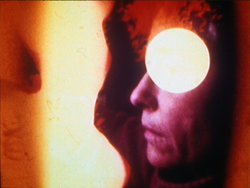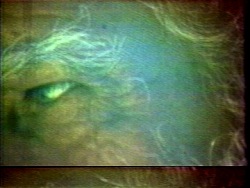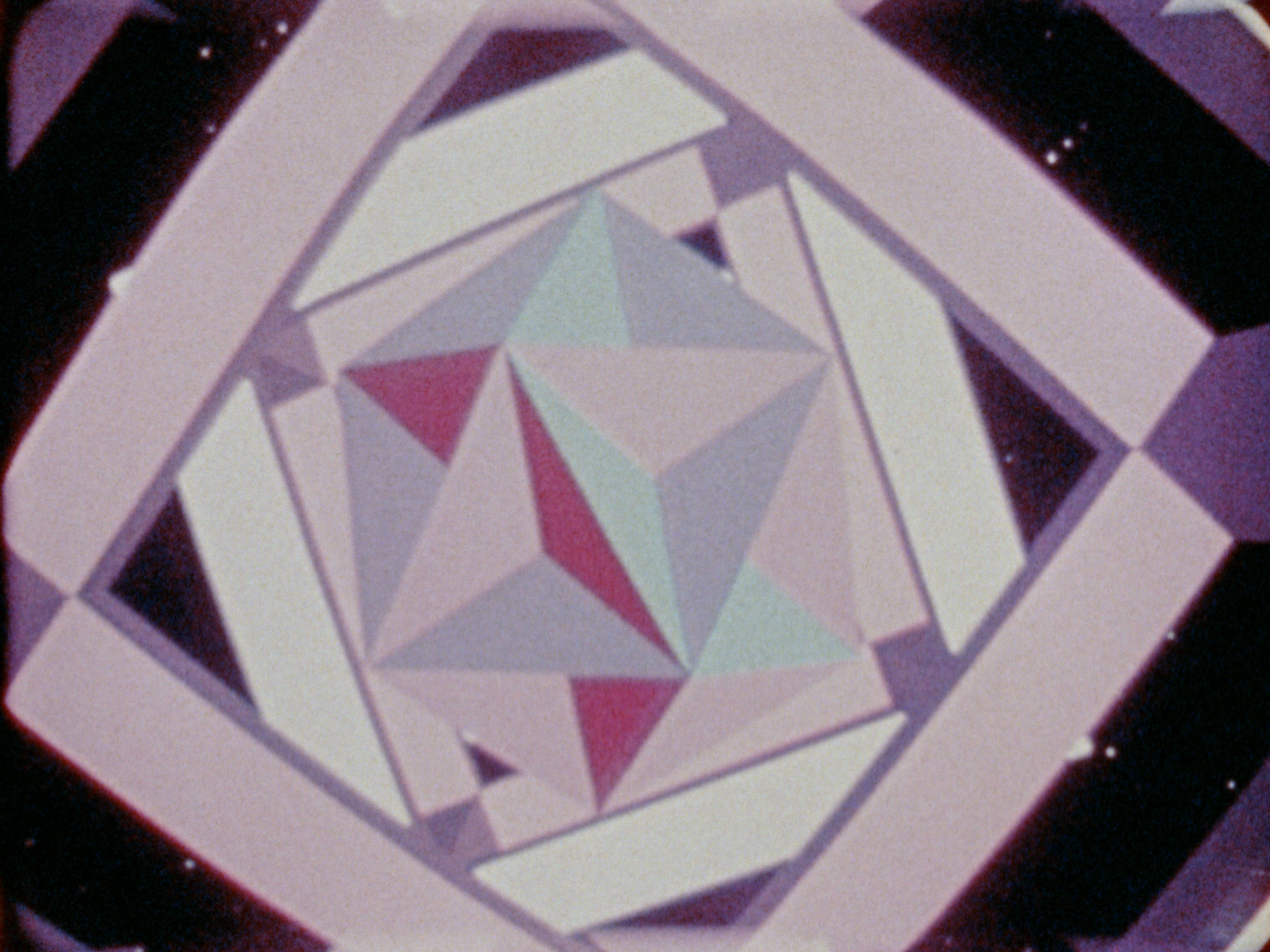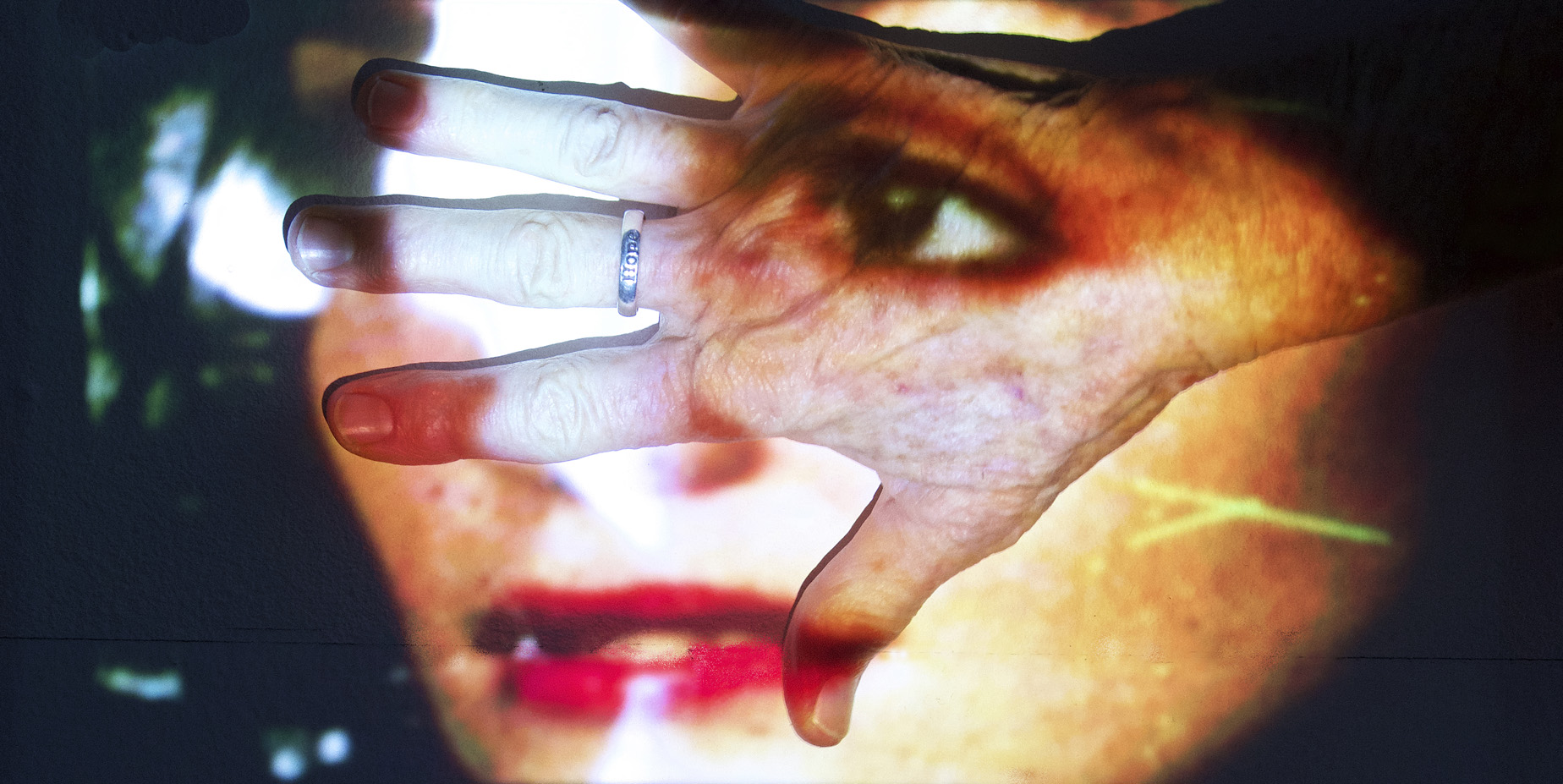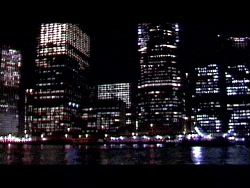Search Results
Search Results
Title Results
Your search returned 805 Titles
These three seminal works demonstrate the spontaneity of early image-processed video, and exemplify Siegel's experiments with the interrelationship of image and music.
Steeped in black humor, this concise political critique is Acconci's contribution to artist Jenny Holzer's collaborative Sign on a Truck project, which was presented on a Diamond Vision Screen in New York in response to Ronald Reagan's re-election campaign in 1984. Acconci portrays Reagan as a ventriloquist's dummy, a two-dimensional puppet's head that is a mouthpiece for the ideology of the Right. Smiling like a TV evangelist or the host of a children's TV show, the Reagan puppet intones a litany of "Family Values" that is at once comic and chilling.
Writes Shimizu: "Studying to become an actor, I read a tragic monologue written by my friend, Nathan Frank, who was also operating the camera. I started making the video right before Y2K, the mood reflected here."
"...Endangered is a compelling expression of the unique power of celluloid and the filmmaking process. Hammer does not hide behind the process of filmmaking – in Endangered we see her making the film. In her hands, the transformation of film into a poetic and avant garde art form comes about through the direct manipulation of celluloid.” – John Hanhardt, Biennial Exhibition Catalogue, Whitney Museum of American Art, 1989.
In This Nervous Thing, Santos questions the ways we perceive and receive information through the media. Santos writes, "Lost in our creations, we must use artificial means, such as newspapers and other media to simulate knowledge of what is around us. In doing so, we create heroes, cities,...
Music has always been a major part of Jenkins's practice as both a storytelling device and means to reflect on contemporary political events. Ethnic Cleansing is a music video for Jenkins’s Othervisions Art Band, made in response to Russia’s invasion of Ukraine in 2022.
"In these horrific times when lies are blatantly exclaimed as truths, when fear makes us withdraw from each other, when difference is maligned as xenophobia, and when atrocities are committed in the name of spectacle, we must find and practice a quiet way of compassion, sympathy, and generosity through empathy." — Barbara Hammer
Evil addresses urban life and mediated representations of capital and capitalism, and the popular usage of the term "evil." The Manhattan skyline is seen from boats trolling New York's waterways. What is at once revealed and concealed is the face of American capitalism, global power, and high finance: Wall Street, the World Trade Center's Twin Towers, the United Nations. Cokes overlays these images with quotations from philosopher Alain Badiou.




